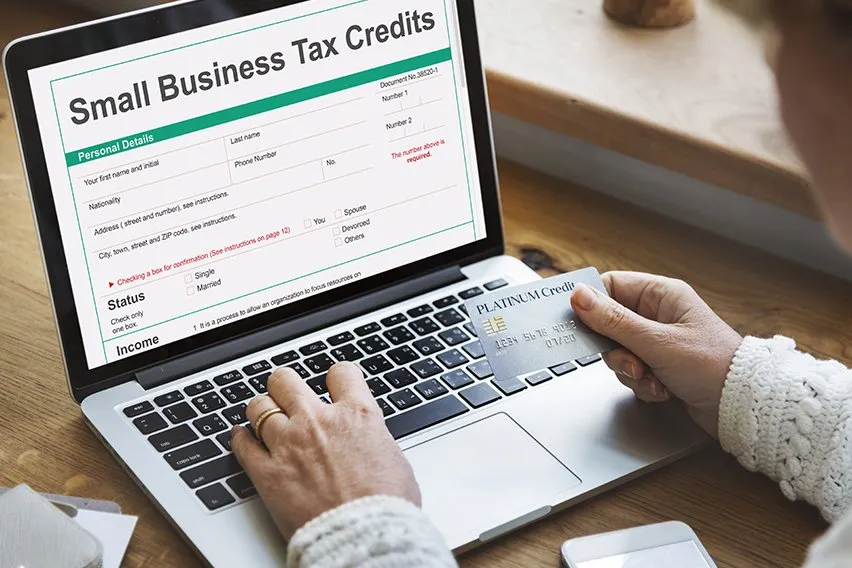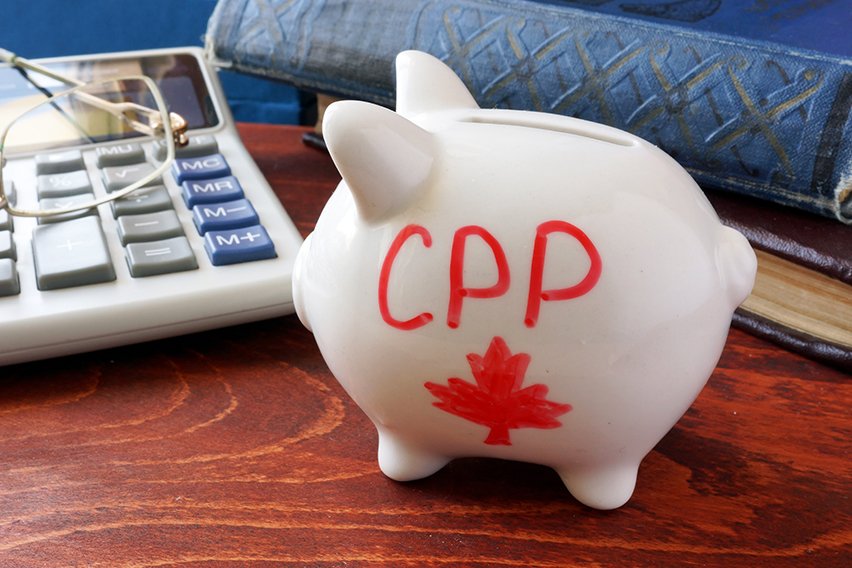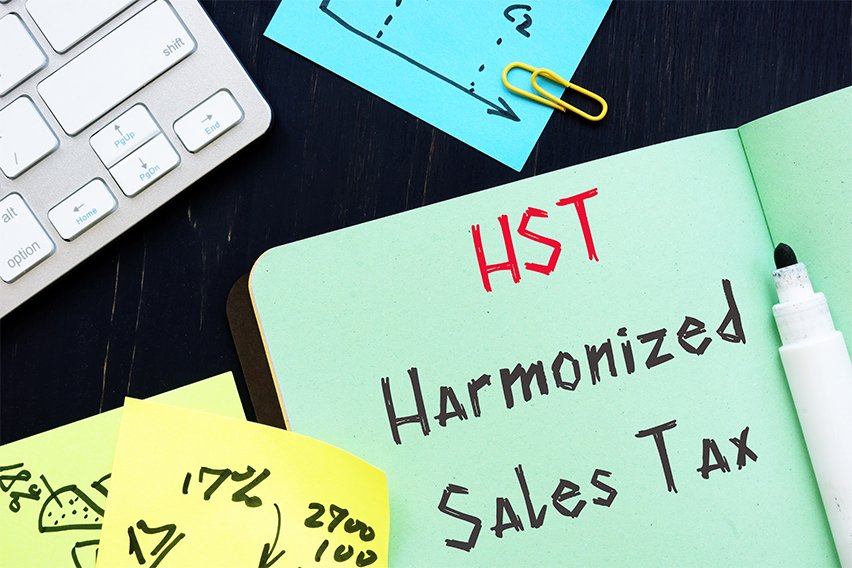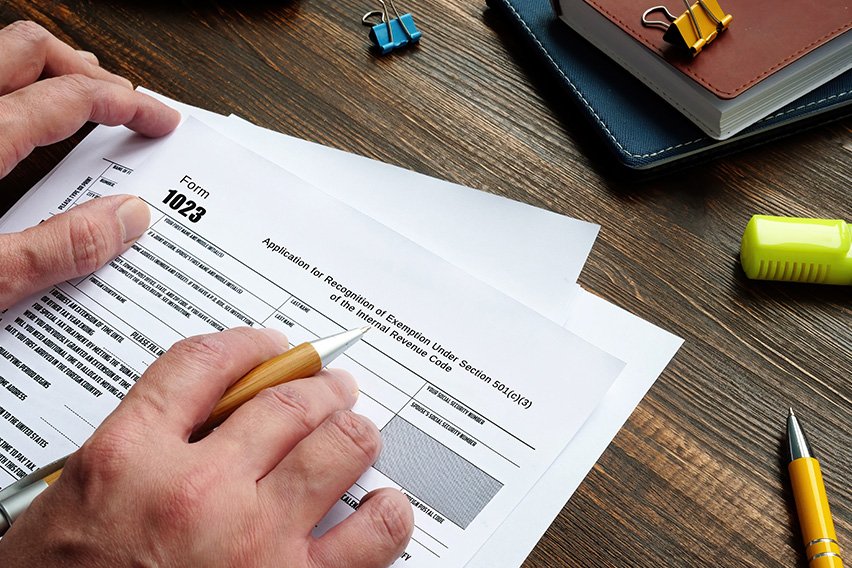Small Business Deduction: Understand What You Should Know

All businesses come with business expenses, even small businesses. Thankfully, the Canada Revenue Agency (CRA) provides a number of taxable benefits for small-business owners. These small-business tax deductions may work in your favour when it’s time to file your business tax return. Keep reading to gain a deeper understanding of Canada’s small business deduction, and if your small business is eligible for it!
Here’s What We’ll Cover:
Difference Between Tax Write-Offs, Deductions, and Tax Credits
Some terms you’ll come across when researching taxes in Canada may look the same. However, despite sounding similar, they may refer to actions that can cause a variety of different consequences to your business. Understanding the meaning of these terms and their potential impact is going to help you enjoy more tax-saving benefits.
Tax Write-Offs and Deductions
For business purposes, tax write-offs and tax deductions are essentially the same thing. The two terms can be used interchangeably. Deductions for business owners lower the amount of money counted towards the tax you’ll owe. When these are figured in, they can lower your business’s tax rate. Keeping track of business expenses and available deductions are the best way to lower your corporate tax rate.
Tax Credits
Tax credits actually lower the amount of taxes owed to the Canada Revenue Agency. These are claimed after figuring what is owed in taxes. As such, they can be invaluable for reducing the amount your business owes to the CRA. Both deductions and tax credits can be used alongside each other.

How Are Small Business Deductions Claimed?
To be able to claim small business deductions, you must first spend money on your business. Any money spent for personal purposes will not count, and will not reduce the taxable income for your business. However, purchasing things for an at-home office for your small business are able to be deducted. Office furniture, office supplies, and other office expenses can be counted as business expenses.
There are specific tax forms that have to be filled out to claim these deductions. Tax forms T2125, T2121, and T2042 can be used. It depends on your situation, though.
- T2125: Statement of Business or Professional Activities
- T2121: Statement of Fishing Activities
- T2042: Statement of Farming Activities
Each of these industries has a different threshold to what can be claimed as a business deduction. As such, they all require forms independent of one another.
Small Business Deduction in Canada
There are a number of different tax deductions available for your small business in Canada. There are specific requirements for each, and all conditions must be met to qualify.
Small Business Deduction Basics
The Small Business Deduction is the most commonly used deduction for small businesses. As the name implies, it is meant specifically for small businesses. The CRA lowers your business’s overall tax rate if the specific criteria are met.
- Your business must be a Canada-based organization although it can still conduct cross-border business.
- Your business must be a private corporation. Private corporations are the only entities eligible for the Small Business Deduction.
- Your organization must have less than $10 million in taxable capital employed in Canada. This figure is equal to the total of shareholder equity, surpluses and reserves, and loans or advances to the organization.
Generally speaking, the small business deduction credit applies to the first $500,000 of taxable capital. This is deducted from active business carried on in Canada. It’s also known as the business limit. Any company that has less than $10 million in taxable capital automatically qualifies for the deduction.
Corporations with between $10 and $15 million in taxable capital qualify for a partial deduction. If a company makes more than $10 million, but less than $11 million, the deduction is $400,000. The amount reduces by $100,000 for each $1 million in taxable capital. When the taxable capital business limit of $15 million is exceeded, no deduction is available.
What is Active Business Income?
Active business income comes from any business carried on in Canada. It’s got a very broad definition, making discerning your business’s activity somewhat difficult. The three details below can help you determine if your business qualifies for active business income:
- Income from any business that isn’t a specified investment business
- Income from any business that isn’t a personal service business
- Income “pertaining to or incident to” a corporation’s active business
- Income from a concern or adventure having to do with trade
There are exceptions to the business carried on by a specified investment business, as well. They are listed below:
- Any business carried on by a credit union
- Businesses that lease property other than real or immovable property
- A business that employs at least 5 full-time employees annually
- A business using services from a corporation that would need 5 full-time employees otherwise
What is a Personal Service Business?
A personal service business is any business where the individual provides services. They also have to be individually incorporated. Essentially, if you’re providing services as an individual, you are a personal service business. It can become quite confusing, depending on the business that you conduct.
Other Common Tax Deductions for Small Businesses
Common Business Expenses
The CRA allows deductions to be claimed on all eligible business expenses. Not all purchases will be a tax-deductible business expense. A list of deductible business expenses are listed below.
- Advertising
- Wages paid to employees
- Office supplies
- Rent paid for office space
- Utilities paid for the office space
- Inventory costs
- Accounting costs
- Legal costs
- Professional fees
All of these are considered legitimate deductions by the CRA. As such, they can be used as a deduction for your small business.
Tax Deduction for Advertising
While this can be seen as a common business expense, it also should be viewed independently. Advertising can be done in print, on TV, and through online ads. All advertising expenses can be deducted when 80% of the content is editorial content, and marketed to a Canadian audience. If not, then 50% of the advertising costs can be considered a tax deduction.
Tax Deduction for Bad Debt
If an accounts receivable turns into a bad debt, the resulting expense can be used as a tax deduction. This can only be done when the accounts receivable has already been claimed as income for the tax year.
Vehicle Cost Deductions
If you’re using your vehicle for business purposes, most of the associated expenses can be deducted from your taxes. This includes all of the following costs:
- Gas: The fuel used on business trips in the vehicle, specifically.
- Insurance: The costs for insuring the vehicle for business purposes.
- Registration Fees: Any fees associated with registering the vehicle.
- Necessary Maintenance: This includes oil changes, brake work, tires, et cetera. The maintenance must be needed or routine. Vehicle modifications are not included.
Costs can be itemized, or a standard mileage rate can be applied. Typically, the mileage rate is the standard method of deduction. Regardless, keeping detailed records is a must to be able to deduct vehicle expenses. Mileage logs are a good idea, as are any maintenance records that are incurred throughout the year.
Entertainment and Meal Expenses
If your business hosts clients, the entertainment and meal expenses incurred can be deducted, as well. These cannot be deducted if clients are charged for them later, though. When claiming these, you can claim up to 50% of the total costs as a deduction. These can also apply to office parties, but there is a limit of 6 occasions able to be claimed in any tax year.

Tracking Small Business Expenses
When you plan on taking the Small Business Deduction, or any of the tax deductions listed, you have to keep detailed records. This can apply to a number of different record-keeping techniques. The reason that these expenses need to be tracked is to be able to prove that you incurred them. Anyone can claim business deductions, but without proof to back them your business is subject to penalties.
Tracking Expenses Using Accounting Software
Accounting software makes tracking business expenses easy. When you’re a small business, you’ll likely qualify for a large amount of deductions. Being prepared by keeping detailed records is the best way to claim these deductions. Software is the method of accounting that most people prefer when tracking business expenses for this reason.
When you track expenses, it’s important to enter information accurately, of course. Being able to look at individual expenses, as well as expense categories, lets you be sure that things are correct. Submitting tax forms that have inaccurate information can cause problems for your business. It can also make accounting a larger headache than necessary.
Expenses have to comply with CRA regulations. Great accounting software lets you double-check all expenses, and makes sure that they are compliant. It also lets you check your return documents before submission. Having several layers of protection is important when submitting sensitive financial information.
Does My Business Qualify For Small Business Deductions?
This may be something that you’re asking yourself. It makes sense, since tax documentation can be so fickle. If you run a Canadian-owned corporation, you may be able to claim a plethora of small business deductions. The following conditions have to be met, however.
Your Business Must Be a Canadian-Controlled Private Corporation
This is the first major qualification for qualifying for small business deductions from the CRA. To be a Canadian-controlled private corporation (CCPC), the following criteria must be met:
- The corporation must be private
- It must be located in Canada
- The company must have become incorporated between June 18, 1971 and the present
- All of the capital stock shares are not listed on a designated stock exchange
Additionally, the small business cannot be controlled by any of the following individuals:
- A non-resident person, or non-resident people
- One or more public corporations (it must be independently owned)
- Another Canadian corporation, or Canadian corporation, that lists shares on a foreign exchange
- Anyone or more of the above entities
If these conditions cannot be met, then a business cannot be considered a CCPC. If that’s the case, then the business does not qualify for small business deductions offered by the CRA.
Key Takeaways
When it comes to paying taxes, most businesses want to reduce the payment as much as possible. This is understandable, as every tax dollar is taken out of the business’s pockets. By understanding the small business deduction, you can reduce your tax payments significantly. The small business deduction is especially helpful when combined with other common deductions. Be sure to read up on your business, and all of the possible deductions you may have!
If you’re looking for more information like this, be sure to visit our resource hub. We pride ourselves on helping small businesses with their needs! Read through a few articles today!
More Useful Resources
RELATED ARTICLES

 How to Pay Using Pre-Authorized Debit? A Beginner’s Guide
How to Pay Using Pre-Authorized Debit? A Beginner’s Guide What Is a PMO (Project Management Office)? A Complete Guide
What Is a PMO (Project Management Office)? A Complete Guide How to Calculate CPP (Canada Pension Plan)
How to Calculate CPP (Canada Pension Plan) How to Calculate HST for Small Businesses
How to Calculate HST for Small Businesses Tax Exemption Requirements for Organizations
Tax Exemption Requirements for Organizations How Much Cash Can You Deposit?
How Much Cash Can You Deposit?